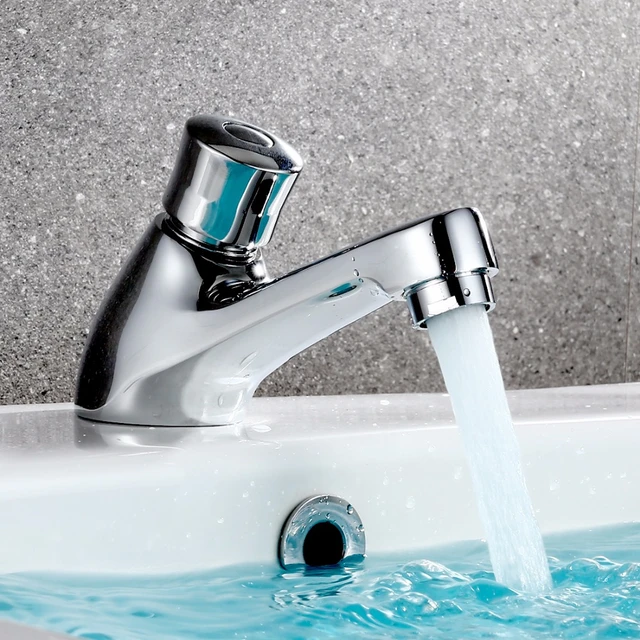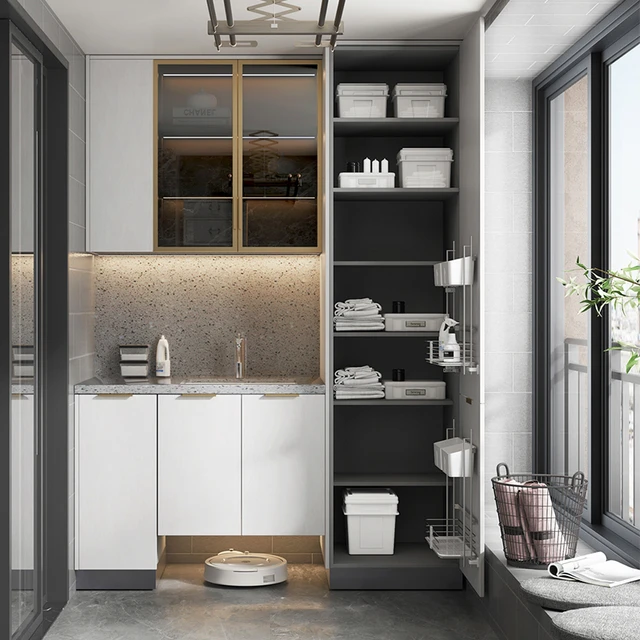 When it comes to managing water systems in your home, there are various scenarios that require turning off the water supply. Whether it’s for plumbing repairs, seasonal shutdowns, or emergency situations, a common question arises: should you leave faucets open when the water is turned off? Understanding the reasoning behind this practice can help you maintain your home’s plumbing system and avoid potential issues. This article explores the importance of leaving faucets open, examines the contexts in which it is relevant, and provides practical advice for homeowners.
When it comes to managing water systems in your home, there are various scenarios that require turning off the water supply. Whether it’s for plumbing repairs, seasonal shutdowns, or emergency situations, a common question arises: should you leave faucets open when the water is turned off? Understanding the reasoning behind this practice can help you maintain your home’s plumbing system and avoid potential issues. This article explores the importance of leaving faucets open, examines the contexts in which it is relevant, and provides practical advice for homeowners.
 Understanding the Basics of Water Systems
Understanding the Basics of Water Systems
Before diving into the reasons for leaving faucets open, it’s essential to understand some fundamental aspects of home water systems.
How Water Systems Work
Pressurized Systems: Home water systems are pressurized, ensuring water flows at a consistent rate when faucets are turned on. This pressure is typically maintained by the municipal water supply or a private well system.
Pipes and Faucets: Water travels through a network of pipes that lead to various faucets, showers, and appliances. When a faucet is closed, the water remains pressurized within the pipes until it is needed.
Shutoff Valves: These valves are crucial for controlling water flow in your home. They allow you to stop the water supply in specific areas or throughout the entire house, facilitating repairs or maintenance.
Reasons to Leave Faucets Open
There are several compelling reasons to leave faucets open when the water is turned off. Understanding these reasons can help you make informed decisions in various situations.
Preventing Pressure Build-Up
Pressure Relieve: When you turn off the main water supply, there’s residual pressure in the pipes. Opening the faucets helps release this pressure, preventing potential damage.
Pipe Bursting: If pressure builds up and has no outlet, it can cause pipes to burst, leading to significant water damage once the supply is turned back on. Open faucets allow the pressure to dissipate safely.
Draining Water from Pipes
Complete Drainage: If you need to drain your plumbing system, leaving faucets open ensures all water exits the pipes. This is especially crucial during winterization, preventing pipes from freezing.
Maintenance and Repairs: When conducting plumbing repairs, having the pipes fully drained makes the work easier and safer. It eliminates any residual water that could interfere with the repair process.
Identifying Leaks and Issues
Leak Detection: Open faucets can help you identify leaks when you turn the water back on. Water will flow visibly from open faucets, allowing you to spot and address issues promptly.
Pressure Testing: After repairs, opening the faucets can aid in pressure testing the system. Any inconsistencies or leaks will become evident, enabling you to fix problems before they escalate.
 Contexts for Keeping Faucets Open
Contexts for Keeping Faucets Open
Not all scenarios require leaving faucets open when the water is turned off. Here, we discuss specific contexts where this practice is particularly beneficial.
Emergency Shutoffs
Water Leaks: In the event of a significant water leak, immediately shutting off the main water supply and opening faucets helps in reducing pressure and draining residual water. This can minimize water damage and make it easier to conduct repairs.
Frozen Pipes: During freezing temperatures, if you suspect pipes have frozen, shut off the main water supply and open faucets to relieve pressure and help prevent the pipes from bursting as they thaw.
Seasonal Shutdowns
Vacation Shutdowns: If you are leaving your home for an extended period, turning off the water supply and opening faucets can prevent unexpected leaks and water damage while you’re away.
Winterization: For homes in cold climates, turning off the water supply and opening faucets to drain the system is crucial for winterization. This helps to avoid frozen pipes and severe damage.
Plumbing Repairs and Maintenance
Fixture Replacement: If you are replacing a faucet, showerhead, or other fixture, turning off the water supply and opening faucets to drain the remaining water ensures a safer and cleaner replacement process.
Pipe Repairs: For pipe repairs, opening faucets after turning off the water supply ensures the pipes are empty, making the repair process more manageable and reducing the risk of water damage.
 Practical Steps for Managing Faucets and Water Supply
Practical Steps for Managing Faucets and Water Supply
Understanding the process for properly managing faucets when the water supply is turned off can help you maintain your home’s plumbing system effectively. Below are practical steps to follow in various scenarios.
Emergency Situations
Locate the Main Shutoff Valve: Familiarize yourself with the location of your main shutoff valve. In an emergency, turn it off immediately.
Open Faucets: Open all nearby faucets to relieve pressure and drain the system.
Monitor and Repair: After addressing the immediate issue, monitor the system for leaks or damage and schedule necessary repairs.
Planned Maintenance
Turn Off the Water Supply: Before starting any plumbing repairs, shut off the main water supply or localized shutoff valve for the area you’re working on.
Open Faucets: Open faucets to drain any remaining water from the pipes. This ensures a cleaner and safer working environment.
Conduct Repairs: Perform the necessary repairs or maintenance tasks.
Test the System: After completing repairs, turn the water supply back on and open faucets to check for leaks and test for proper pressure.
Seasonal Preparation
Winterization Preparation: Before winter sets in, turn off the main water supply to your home.
Drain the System: Open all faucets, including outdoor spigots, to drain remaining water from the pipes.
Inspect and Insulate: Inspect pipes for any signs of damage and insulate exposed pipes to protect them from freezing.
Check Faucets Periodically: If you’re away for an extended period, have someone periodically check your home to ensure no issues arise in your absence.
Tools and Materials for Managing Faucets and Water Supply
Properly managing your faucets and water supply may require specific tools and materials. Having these items on hand can simplify the process.
 Essential Tools
Essential Tools
Wrench: To turn shutoff valves.
Bucket: To catch residual water when draining pipes.
Towels or Rags: For cleaning up spills and drying areas around faucets and valves.
Plumber’s Tape: For sealing threads when fixing leaks.
Recommended Materials
Pipe Insulation: To protect pipes from freezing.
Antifreeze: For adding to drains in unheated spaces during winterization.
Leak Detector Solution: To identify small leaks during pressure testing.
Hiring Professionals
In some situations, it may be best to hire a professional plumber, especially if you’re unfamiliar with your home’s plumbing system or facing a complicated issue.
Consult a Plumber: For significant repairs or complex systems, consult a professional to ensure the job is done correctly and safely.
Regular Inspections: Schedule regular inspections to catch potential issues early.
Conclusion
Should you leave faucets open when the water is turned off? In many scenarios, the answer is yes. Opening faucets can help relieve pressure, drain water from the system, and facilitate maintenance and repairs. This practice is particularly important in emergency situations, during seasonal shutdowns, and when conducting planned plumbing work. By following the practical steps and using the recommended tools and materials outlined in this article, you can effectively manage your home’s water supply and maintain a healthy plumbing system.
Whether you’re a seasoned DIY homeowner or prefer to hire professionals, understanding the importance of leaving faucets open can help you make informed decisions and keep your home’s plumbing system in top condition. Regularly checking and maintaining your system will ensure it runs smoothly, extend the life of your pipes and fixtures, and prevent costly damage.



